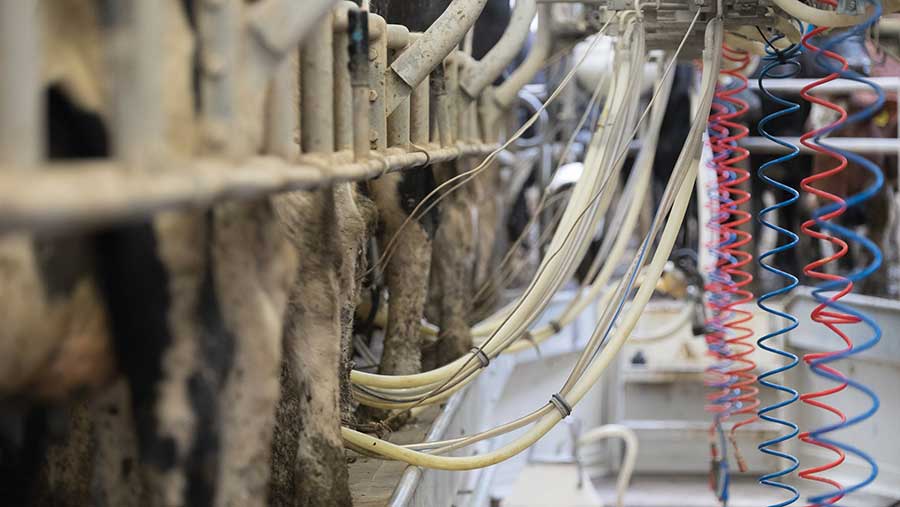Three Brexit scenarios could be positive for UK milk prices
 © Tim Scrivener
© Tim Scrivener Three post-Brexit trade scenarios would all have a positive effect on UK farmgate milk prices, according to new research from AHDB.
The study analysed three potential trade models that the UK could adopt after officially leaving the EU in April 2019, all of which would push the prices farmers receive for their milk upwards by between 0.5% and 10-12%.
However, AHDB head of strategic insight David Swales stressed that other factors such as regulation, subsidies and labour would all be influences in determining overall farm profits after Brexit.
“The milk prices will fluctuate regardless of the trade deal the UK gets after we leave the EU,” he said.
“Farmgate prices will be determined by supply and demand factors, but these initial results show prices from these three models will be higher than they would have been otherwise.”
He added: “We want levy payers to think about what effect Brexit is going to have on their business and, although farmgate prices would be higher under these models, other factors will determine total levels of income.”
See also: Northern Irish dairy farmers in line for milk price top-up
The research, due to be published in full in October, showed that of the three models analysed by AHDB and consultants, Agribusiness Consulting, a World Trade Organisation (WTO) trade deal would have the highest positive impact on UK farmgate milk prices.
WTO deal
A WTO deal would incur significant import charges of 40-50% with the UK’s principal dairy export partner the EU, pushing up the price of foreign dairy products.
Consumers would be encouraged to buy cheaper British products and enable domestic producers to charge more for their milk.
This deal is predicted to have a positive impact on farmgate milk prices of between 10% and 12%.
Evolution scenario
The second trade model the study looked at was a deal as close to being within the EU as the UK currently is, known as an Evolution scenario.
Close to the government’s current, best-case scenario negotiation demands, this option would give the UK a comprehensive trade agreement and no trade tariffs with the EU.
However, due to not being an EU member state, the UK would be subject to customs checks on imports and exports of around 4-5%.
This increase in the price of foreign imports would again make UK produce more attractive, with an anticipated farmgate milk price increase of around 4%.
Liberal trade deal
Under the liberal trade scenario, the UK would unilaterally lower import tariffs for dairy products to make it more of an attractive trading partner globally.
This would be a highly unusual step, said Mr Swales, but was in place in city states such as Singapore and Hong Kong, and would mean the UK would not put charges on any global dairy imports.
However, there would be the cost of customs checks on both imports and exports, to enable the UK and EU to check goods were produced to the correct standards.
Currently the EU protects UK dairy from cheap imports, but this would not be the case under this scenario. However, Mr Swales said that the cost of dairy imports from other parts of the world were not drastically cheaper.
This scenario would increase import prices slightly, leading to a rise in farmgate prices of 0.5%.
